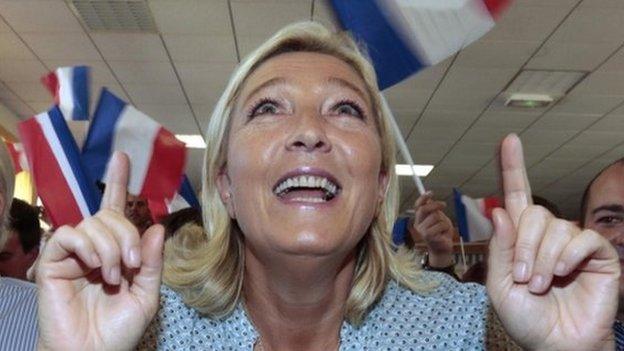France polls: A step closer to power for the National Front?
- Published
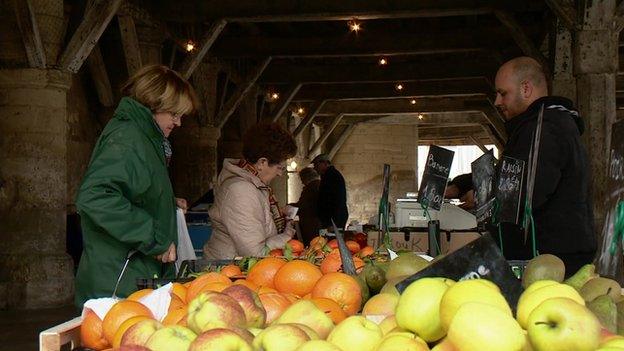
Many people in Fere-en-Tardenois say they will not vote because they do not trust politicians
France's far-right party, the National Front (FN), is predicted to make further gains in the first round of the country's departmental elections taking place on Sunday. Could the results mark a step closer to national power for the FN?
The market in Fere-en-Tardenois offers a decent spread, with election campaigners for all political tastes.
But the regional flavour of the month is the FN - predicted to win more than 40% in the first round of voting.
This region of flat, northern farmland is seen as the epicentre of the far-right tremors rippling across France. The party calls it "the France of the forgotten".
The local FN candidate in Fere-en-Tardenois, Mireille Chevet, says the biggest issue for voters here is immigration.
"We defend the rights of the Indians in the Amazon or natives in Lapland to their culture," she told me. "But the French: no! When we stand up for ourselves, we're accused of being fascists."
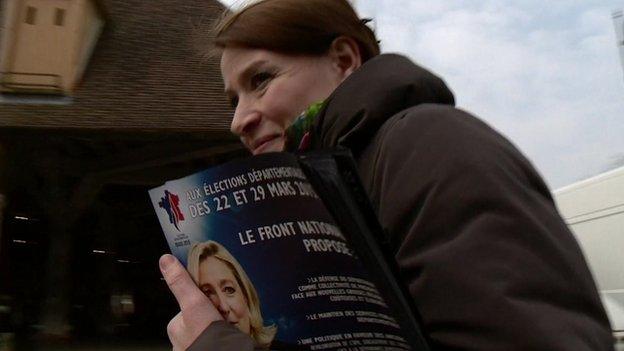
National Front candidate Mireille Chevet says immigration is the biggest issue for voters
The identity debate here has been sharpened by years of economic stagnation. The wider Picardy region has lost a third of its industrial jobs in the past 15 years, and unemployment is 14% - well above the national average.
The failure of mainstream parties to find solutions is fertile ground for populism - but also apathy.
'Promises, promises'
At a food bank, in the north of Aisne, no-one says they are voting for the FN this weekend - but then only one man says he is planning to vote at all. Most, like jobless Caroline Chailloux, say they have given up, because they do not trust politicians anymore.
"They're all the same," says Caroline. "They say they'll create jobs but they never do. It's just promises, promises. That's why I'm not voting on Sunday."
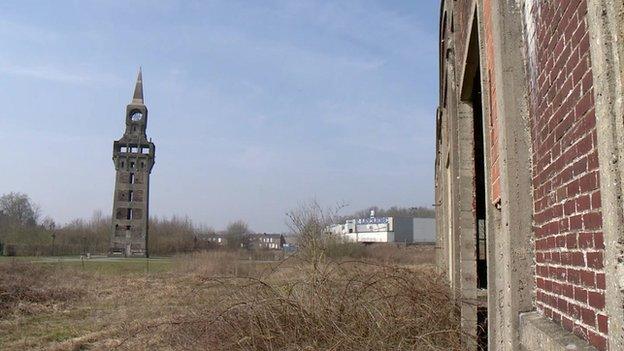
The National Front calls the area around Fere-en-Tardenois "the France of the forgotten".
Apathy has traditionally favoured the FN, but France's two-round election system has tended to work against it. The second round of voting has in the past acted as a brake on the party - with voters from left and right uniting against it.
But with apathy and frustration growing, how much longer will those voters turn out to keep the FN from power?
'Perversion'
Polls suggest that the party's leader Marine Le Pen is likely to reach the second round of presidential elections here in two years' time. She's not predicted to win, but even so, it is a striking result for a party that currently controls just 11 towns in France.
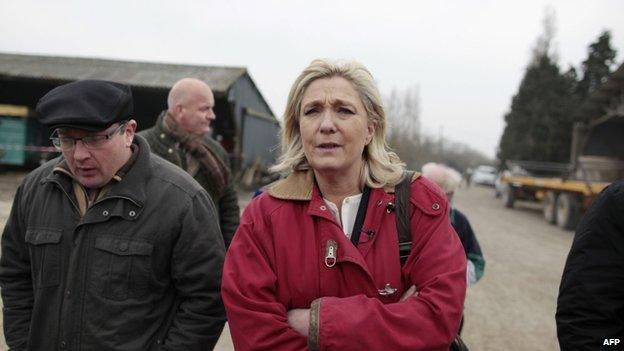
National Front leader Marine Le Pen has drawn rising support among French voters over the past year
And it is her populist policies that both the ruling Socialists and its centre-right rival, the UMP, are increasingly defining themselves against, says Christian Makarian, editor of L'Express newspaper.
"[President] Hollande counts on the success of the FN to show he's a shield against the fascist danger," he explained.
"On the other hand [UMP leader] Nicholas Sarkozy tries to incorporate some propositions of the FN to say he's the only bulwark against [them] - and this is a perversion, equally shared by the Socialists and the right: they denounce the FN, but they count on its success to define their own platforms."
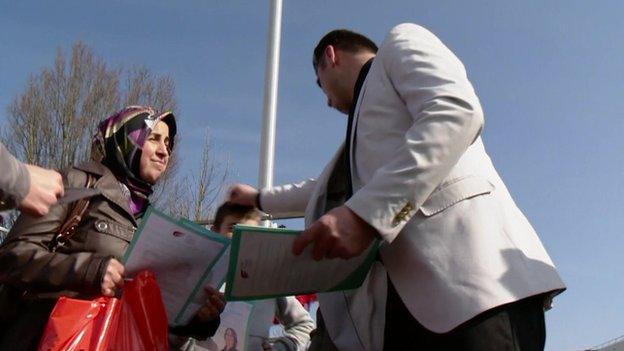
The Equality and Justice Party is taking part in the polls for the first time
And it is not just France's traditional parties that are defining themselves against the far-right.
In the eastern district of Montbeliard, one of two new Muslim-majority parties - the Equality and Justice Party - is out campaigning for the first time, with a pro-diversity agenda.
The Front National may still be largely a protest party - but its impact on France's political landscape is real.
- Published10 March 2015
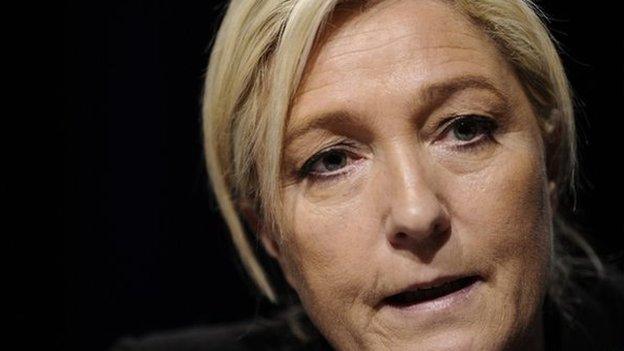
- Published6 February 2015
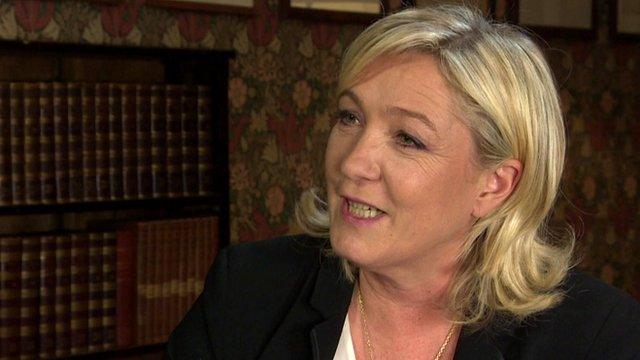
- Published7 September 2014
